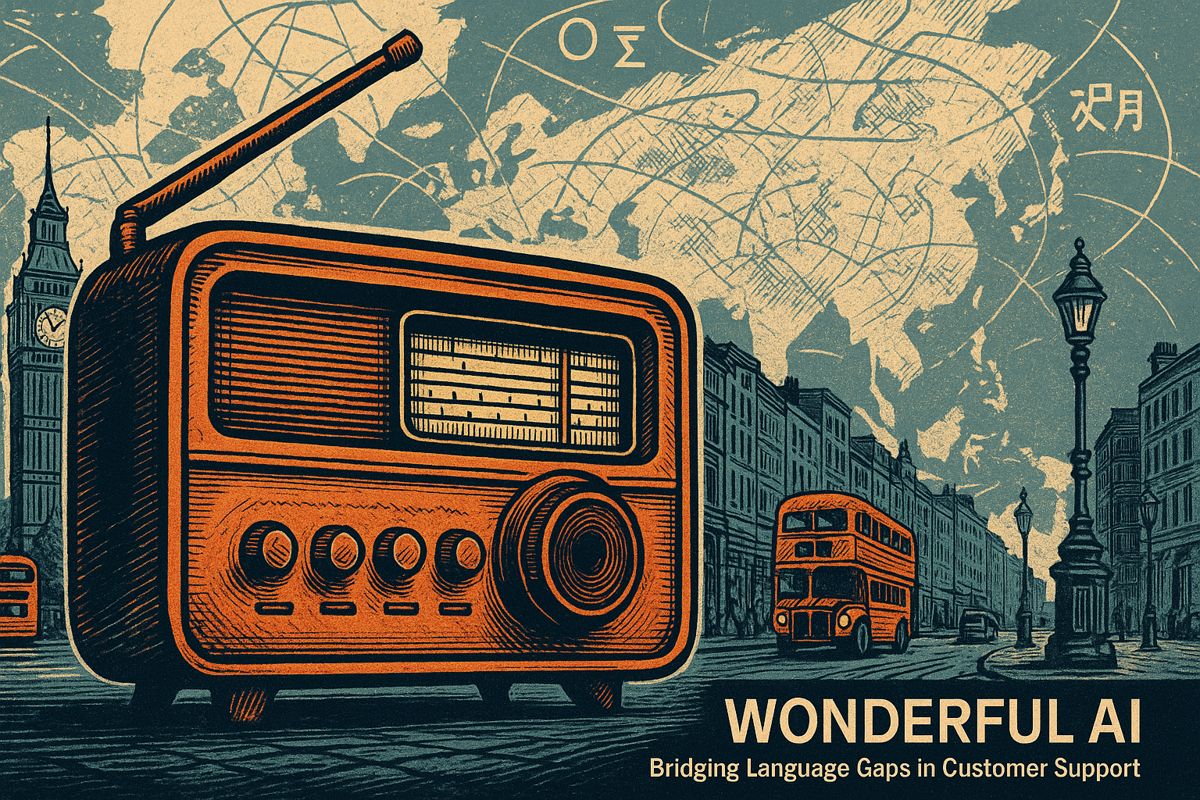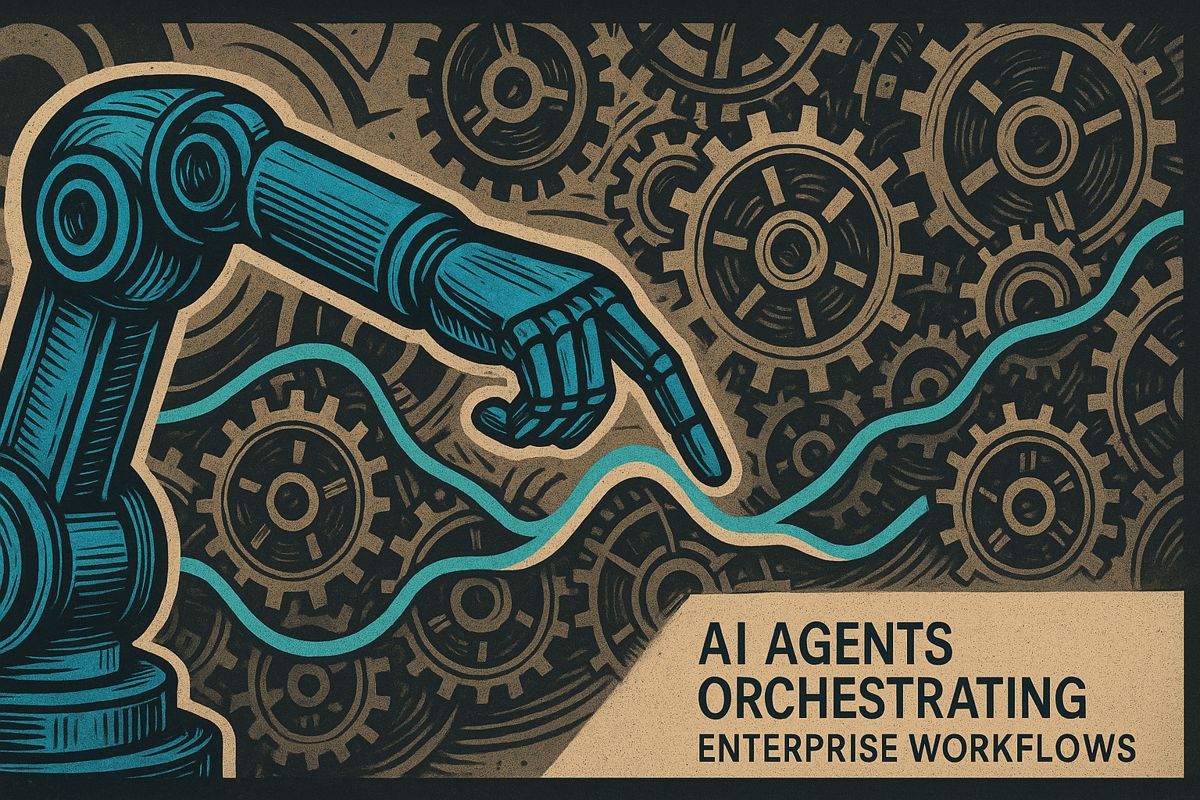Imagine a world where you can talk to a computer in your own language, and it truly understands! This amazing new AI customer support helps people everywhere, not just English speakers, making things easier and more respectful. Companies like Wonderful are leading the way, building special AI that speaks many languages perfectly, even understanding jokes and feelings. This big step means customer service can finally reach everyone, no matter what language they speak, making the digital world a welcoming home for all.
Why is multilingual AI customer support crucial?
Multilingual AI customer support is crucial because it bridges the language gap, moving beyond English-centric solutions. It allows customers to communicate in their native language, fostering dignity and efficiency. Companies like Wonderful are developing AI agents specifically for non-English markets, tapping into billions in annual spending and significantly improving user experience by understanding local nuances and cultural specificities.
Sometimes, it just hits me – the whole digital universe is still locked behind the English language. Remember when Wonderful raised their wild $34 million seed round? It took me straight back to my first freelancing job for an Israeli fintech startup. I was stuck, scrolling through customer support threads in Hebrew, while Google Translate did its best impression of a malfunctioning time machine. The result? Friction, slow motion, and, let’s be honest, a dash of embarrassment. The idea of real-time multilingual support back then felt about as plausible as a self-driving camel.
But here’s the twist: it wasn’t only me. My friend Leah, now head of support at Wix, once told me, “We have the fanciest dashboards, but only in English. The rest? Spare parts and prayers.” That tone – half-hopeful, half-dry – stuck with me. When she caught wind of Wonderful’s platform, she texted: “Finally. Maybe Bubby can finally file her complaints in Yiddish.”
There’s a smell to frustration; it’s metallic, almost like stale coffee in a busy Tel Aviv co-working space. The memory’s vivid, still. And I sometimes wonder: how many stories like mine are still happening – right now?
The Shape of a Shift: Numbers and Names
Let’s zoom in. Wonderful, headquartered in Tel Aviv (and yes, you can almost taste the Mediterranean breeze wafting through their offices), just secured $34 million in seed funding. That’s no rounding error – it’s the kind of cash that makes competitors sweat through their Uniqlo tees. Index Ventures led the charge, with heavyweights like Bessemer Venture Partners and Vine Ventures chipping in. The company’s AI agents were built from the ground up for non-English markets – a rare move in a world obsessed with English-first, patch-later solutions.
Here’s one for the record books: their AI isn’t just another chatbot. It wrangles chat, voice, and email, tuning itself to local quirks and cultural shorthands. It’s live already – Bezeq is running it, so is Maccabi Health Services. Early traction? Off the charts. Major Israeli enterprises, after kicking the tires on a dozen rival platforms, picked Wonderful. And with Israel alone pouring $4 billion into customer support each year, you don’t need a doctorate in economics to do the math: this market has been hungry for something better.
Honestly, when I first saw the numbers, I wondered if it was all hype. But the data – and the stampede of blue-chip customers – says otherwise. It’s not just a “nice-to-have.” It’s a tectonic correction.
Beyond English: Tech That Listens (and Gets the Joke)
Why does this matter? The answer’s not just fiscal – it’s psychological. Language isn’t a tool, it’s home. When a customer lays out their problem, in their own mother tongue, and the system actually gets it? That’s not just efficiency; it’s dignity. No more strained metaphors filtered through Google’s digital sieve. No more feeling like your anger needs subtitles.
Most so-called multilingual AI is, bluntly, a Frankenstein’s monster – English at the core, patched with “localizations” that amount to wishful thinking. Wonderful’s different. From the first commit, it was coded for Hebrew, Arabic, Russian. The agents grasp subtext, timing, even sarcasm – like a customer’s exasperation echoing through a WhatsApp ping. Tipalti and Kaps alumni Bar Winkler and Roey Lalazar, the founders, know this pain. They built their careers in the trenches, translating, adapting, and watching billions evaporate into call center purgatory.
Their secret sauce? Speed. Fifty engineers, months of grind, and a working, battle-ready platform. How? Maybe it’s hunger. Or maybe, just maybe, it’s what happens when you finally build what people have been waiting for – the market comes to you, pounding at the gates.
The Local is the Global: What’s Next?
Israel – just 10 million strong – dumps $4 billion into support every year. Multiply that across every country where English isn’t king. The global market? It balloons, like rising challah dough in a Jaffa bakery. Suddenly, English is just another dialect, not a default; the world starts to sound different.
That’s the real insight: technology’s not global until it’s local. When AI responds in your accent, your rhythms, and even makes the right dad joke, it matters. It’s as if a cold machine grows ears. Your grandma, your cabbie, your cousin on Dizengoff – they can all ask, vent, and be heard. Not translated, not patronized.
I’ll admit, I used to think $34 million was bonkers for a seed round. Now? It feels like the starter pistol for a new race. The future’s polyglot, and Wonderful’s got the head start.
Oops – did I just let my optimism show? Oh well…



















